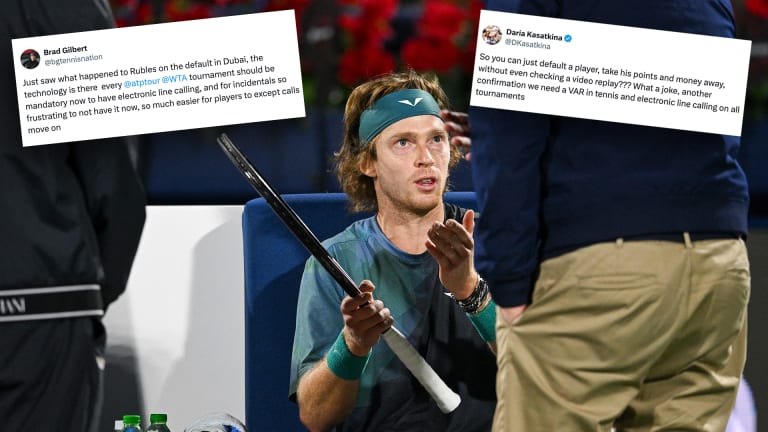Ugly scenes marred the end of Andrey Rublev’s semifinal match against Alexander Bublik, which saw the No. 2 seed defaulted for allegedly cursing at a line judge—and reignited the discussion about a video review system in tennis.
Trailing 7-6 (4), 6-7 (5), 5-6 and with the match seemingly headed into a deciding tiebreak, Rublev vented his frustration by screaming in the face of a linesperson, appearing upset that a Bublik shot on the baseline had not been called out.
According to Tennis.com’s David Kane, a Russian-speaking official alerted chair umpire Miriam Bley and tournament supervisor Roland Herfel that Rublev had yelled an obscenity in Russian at the linesman. Herfel and the official then confronted Rublev, who not only denied the accusation but also insisted he hadn’t been speaking Russian when the incident occurred.
Despite Rublev’s pleas, the supervisor sided with the official and defaulted the player immediately, sending Bublik to the final. The incident left both players and viewers at home in disbelief, and it once again brought up a familiar debate: Why does professional tennis not use a video review system, like soccer’s video assistant referee (VAR)? There’s still no way for tennis players to challenge a situation like Rublev’s, not to mention foot faults, double bounces or let cords.

